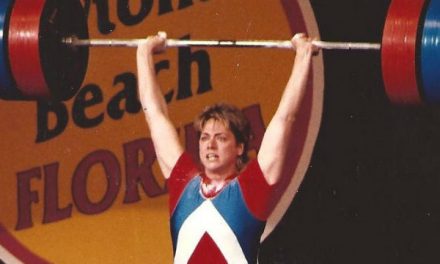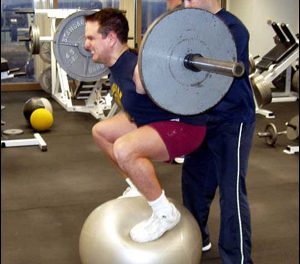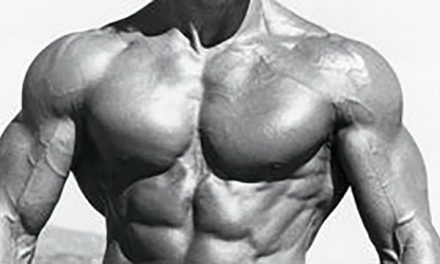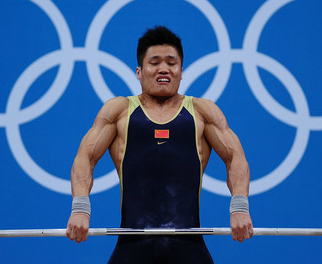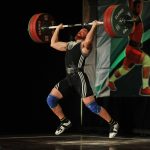It strengthens the entire human structure. I like to image this as a building under construction during the midnight shift. Your cells are busy working to use materials manufactured by the body to repair tissue, dispose of materials considered waste to prepare for the physical activities for the day ahead. Many fitness enthusiasts ask me why, during times of peak performance, they sometimes experience reduced strength, weight increase and irritability. Sleep deprivation will deteriorate athletic performance including the effectiveness in the operations of many components in the human body.Sleep is important. This is essential so muscles can Strengthen, reconstruct, and restore.
Fitness enthusiasts benefit on rest days that help preserve balance between fitness goals, work, and home. In some cases when sleep, recovery and rest are neglected the body can experience overtraining, negatively impacting the progression of improvement. One may catch a cold, flu or other illness due to a weakened immune system. Many times over-training is a result of contest preparation. Competitors frequently fear that if one takes a rest day, their competitor may be training – getting an edge on extra days of training. More training does not equal more results. Often time’s athletes will experience flu symptoms as a result of not managing adequate sleep time.
When the immune system weakens and infections are present, it is usually based on sleep deprivation patterns associated with being in the third stage of “The General Adaption Syndrome”, commonly known as the exhaustive stage.
Managing sleep time into any fitness routine is vital because sleep hours are the time the body adapts to the stress of training and the real training effect takes place. Rest and recovery allows the body to reload energy stores and restore injured tissues. Training and various physical exertions cause changes in the body including muscle breakdown, exhaustion of muscle glycogen and loss of liquids.
Adaptation is when the body undergoes the strain of exercise, progressively adapting and becoming more proficient. Initially it’s challenging, but later becomes easier. When you adapt to a particular stress, you need extra loads to continue to develop. Keep in mind, the body has limits to The amount of stress it can endure before it collapses and injury risk increases.
Performing too quickly may produce injuries, but performing low intensity bouts will not produce improvements.
One or two evenings of poor or little sleep may not have much influence on performance, however constantly getting insufficient sleep can result in subtle changes in hormone levels, particularly those related to stress, including cortisol, muscle improvement and emotional temperament. Some sleep research indicates that sleep deprivation may lead to increased levels of cortisol, reduced production of human growth hormone (present in tissue recuperation), and reduced glycogen production. Additional studies associate sleep deficiency with a reduction in cardiorespiratory endurance as well as high intensity bouts.
Cortisol is a “stress hormone” that is responsible for many longterm health consequences suffered by those who encounter frequent situations. Lack of sleep is one of them. When we are under stress or have an infection, cortisol raises our blood pressure and blood sugar.
These changes help us survive short periods of stress, but they hurt us when they continue for long periods. The problems associated with chronically elevated cortisol levels include:
• Suppressed immunity
• Hypertension
• High Blood sugar (hyperglycemia)
• Insulin resistance
• Carbohydrate cravings
• Metabolic syndrome and type 2 diabetes
• Fat deposits on the face, neck, and belly
• Reduced libido
• Bone loss
The key to exercise improvement and continual strength and endurance progression is alternating recovery periods and adaptation periods.
This method will equal athletes reaching higher levels of fitness.
High level athletes need to realize that the greater the training intensity and effort, the greater the need for sleep and rest.
Documenting your workouts with a fitness journal and monitoring how your body feels and how enthusiastic you are is very useful in assessing your recuperation requirements and adjusting your exercise routine as you move forward. Best rule of thumb is to follow your instinct while at the same time being organized and systematic with a structured program.
Now, go get some sleep.
Sources:
Lamberg, L., Sleep May Be Athletes’ Best Performance Booster, Psychiatric News August 19, 2005, Volume 40 Number 16 Mujika, I. and Padilla. Scientific basis for precompetition tapering strategies. Medicine and Science in Sports and Exercise 35: 1182-11187, 2003.
Spiegel, Leproult and Van Cauter, Impact of sleep debt on metabolic and endocrine function. The Lancet (www.thelancet.com) (1999;354:1435-1439) .
CrossFit Level 1 Trainer has a Masters Degree in Sports Science and Exercise Physiology. Jim is a Professor at Broward College, teaching Physical Sciences. Jim has a distinguished career (20 years) in Law Enforcement, currently Retired a Police Lieutenant from the Miami PD, recognized for numerous commendations, contributions and awards. Jim served 6 years U. S. Air Force, studied Kempo Karate in Misawa, Japan, grew up Wrestling and Judo. Stationed In Italy, Jim competed in Bodybuilding, winning the middleweight division for the US Air Force twice and competed in the European Championships. He also participated in Strongman Power-lifting tournaments in Far East Asia. Jim regularly competes in 5Ks, Adventure Races and Duathlon Races, including the Marine Corps Marathon with his 2 sons, pushing one of his sons, which is a Quadriplegic with cerebral palsy. He and his special needs son created and founded Michael’s Special 5K Run/Walk, benefiting United Cerebral Palsy. Jim is an NSCA Certified Strength & Conditioning Specialist, ACSM, Health Fitness Instructor, and Certified ISSA in Nutrition, NESTA Certified Nutrition and numerous other fitness certifications.
Jim won the Toughest Cop Alive (TCA), International Law Enforcement Games and competed in numerous World Police and Fire Games in the TCA. Each week, thousands of people around the country enjoy a fitness program created by Jim Sayih. He is the CEO of 911 Fitness and Director of Fitness Commitment Institute. These two professional associations have over 40,000 members nation-wide. Jim is also Founder of the 911 Fitness Challenge, benefiting the Shriner’s Children’s Hospitals, fourteen consecutive years. His fitness programs are implemented in Police & Fire Stations in the US and Canada. Jim has been featured on Good Morning America, Discovery Channel, FOX Sports, NBC, CBS and The Christina Show. The DEA, U.S. Secret Service, and SWAT Teams use his programs.
The President’s Council on Physical Fitness & Sports Awarded Jim the coveted Community Leadership Award for his outstanding contribution and involvement in helping communities, nationwide, improve their fitness while raising money for Shriner’s Children’s Hospitals and the American Diabetes Association combined. Learn more at www.JimSayih.com


